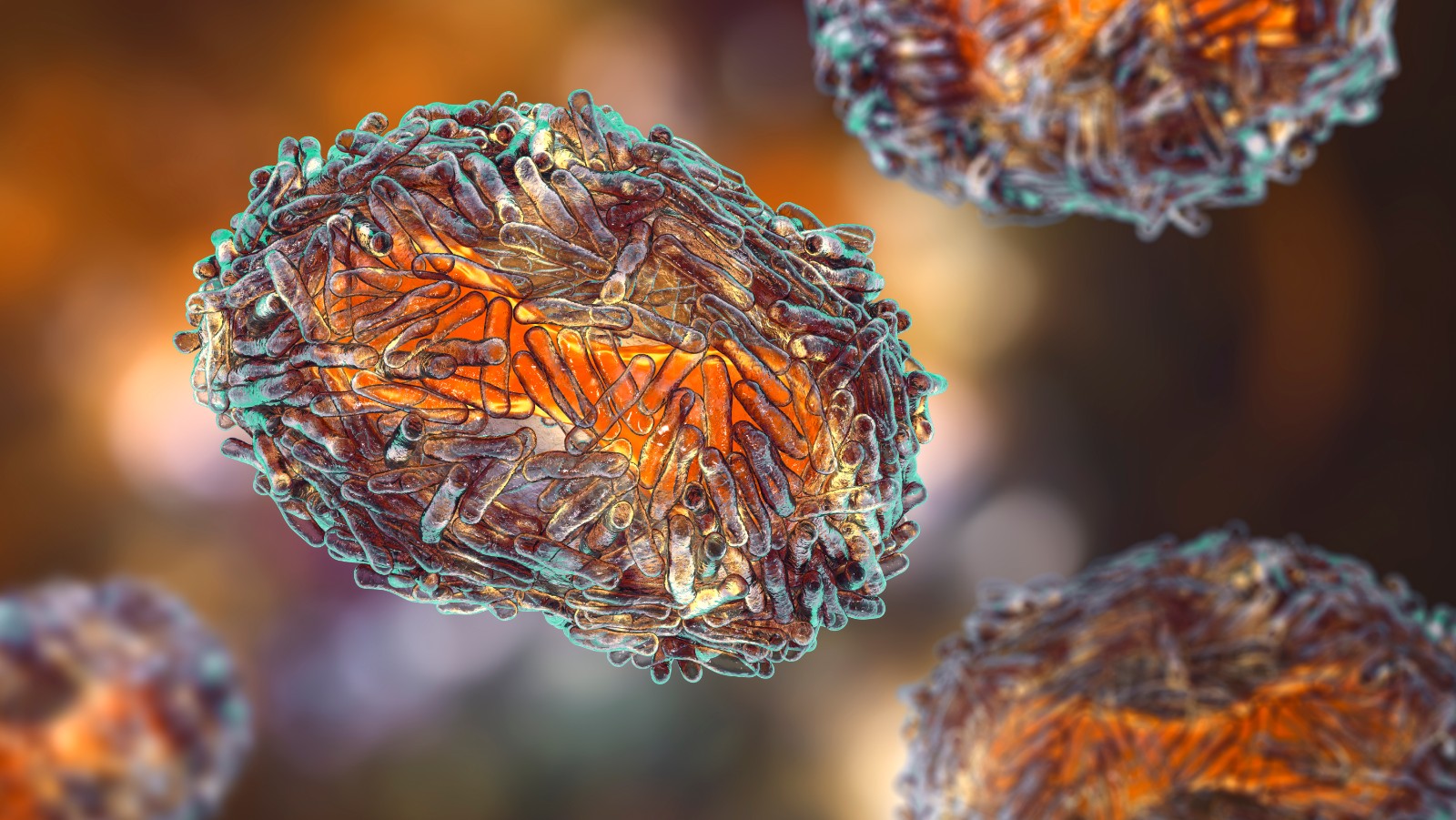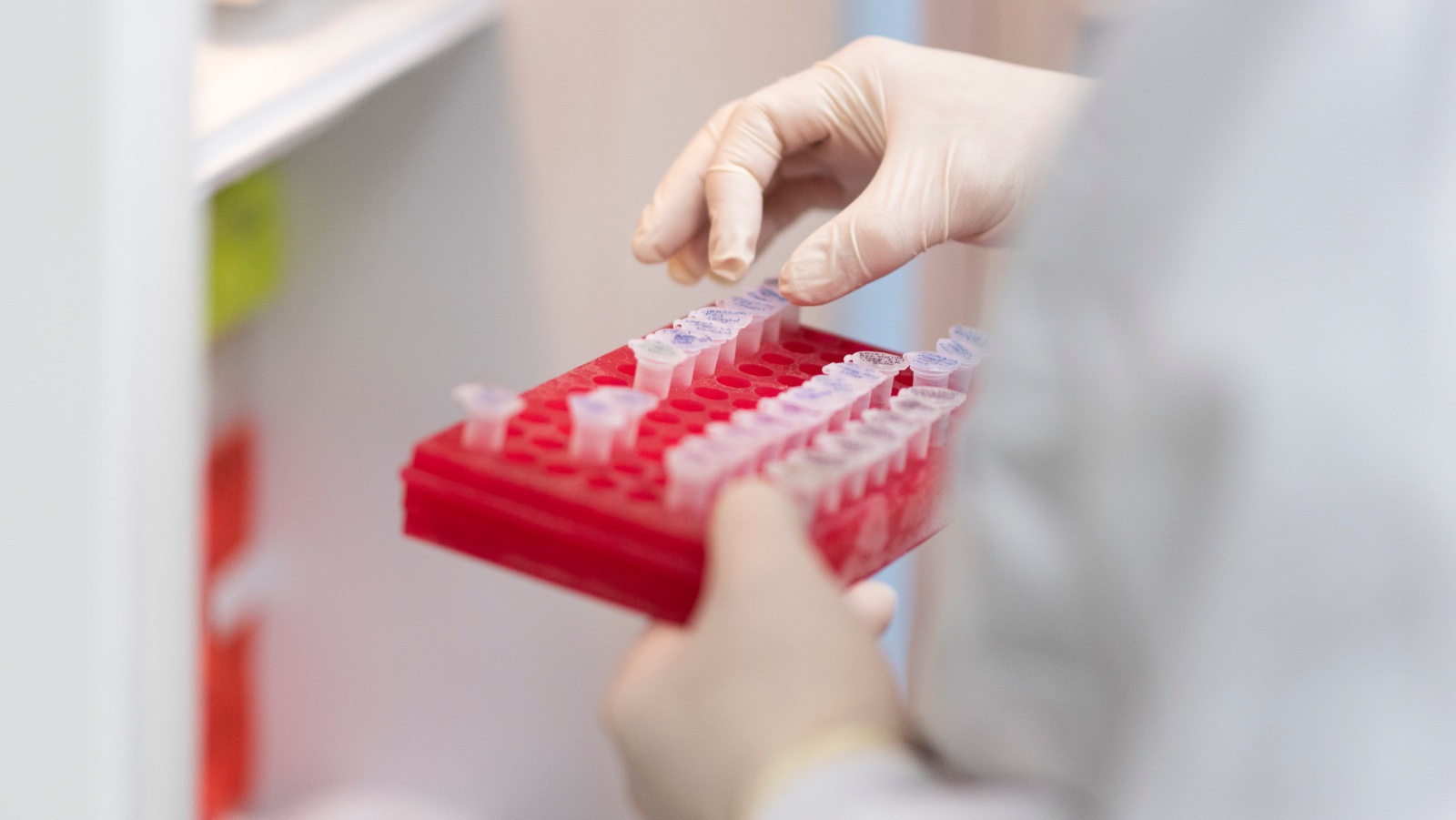
The Brain Power Lab
Mission Statement
The principal objective of the BrainPowerLab is to delineate the molecular processes underlying the causes and progression of infectious and inflammatory diseases of the nervous system. By elucidating these fundamental mechanisms, we aim to aid translation to improved patient care, including diagnostic tools and treatments, for people affected by these disorders. The laboratory's chief diseases of interest include HIV infection of the nervous system and multiple sclerosis.
- Retroviral infections of the nervous system
- Neuroimmunology and Neuroinflammation
- Neural Cell survival
- Neuropathogenesis
- Emerging Neurologic Infections
- Real -time RT-PCR
- Molecular cloning
- Animal models of MS and NeuroAIDS
- Immunocytochemistry / neuropathology
- siRNA development
- DNA microarray
- Viral vector-mediated gene expression
- Immunoblotting
- Electrophysiology (patch clamp)
- Neurobehavioural analysis (animals and humans)
- Primary cell culture
- Cell proliferation assays
- FACS
- Reverse transcriptase assays
- microRNA analysis
- Deep sequencing
- Calcium imaging
Our researchers share their work with the medical community through publication in a number of reputable journals.
Peroxisome injury in multiple sclerosis: protective effects of 4-phenylbutyrate in CNS-associated macrophages.Roczkowsky A, Doan MAL, Hlavay B, Mamik MK, Branton WG, McKenzie BA, Saito LB, Schmitt L, Eitzen G, Di Cara F, Wuest M, Wuest F, Rachubinski R, Power C* J Neurosci. 2022 Aug 8;42(37):7152-65. doi: 10.1523/JNEUROSCI.0312-22.2022. Online ahead of print. PMID: 35940876
Microbial molecule ingress promotes neuroinflammation and brain CCR5 expression in persons with HIV-associated neurocognitive disorders.
Branton WG, Fernandes JP, Mohammadzadeh N, Doan MAL, Laman JD, Gelman BB, Fagrough Z, Kondova I, Mooij P, Koopman G, Power C*. Brain Behavior and Immunity (in press)
Lentiviral infections persist in brain despite effective antiretroviral therapy and neuroimmune activation.
Mohammadzadeh N, Roda W, Branton WG, Clain J, Rabezanahary H, Zghidi-Abouzid O, Gelman BB, Angel JB, Cohen EA, Gill MJ, Li M, Estaquier J, Power C*. mBio. 2021 Dec 21;12(6):e0278421
Members

Professor
Principal Investigator
Toupin Chair Neurocognitive Disorders
Academic Biography
Christopher Power, B.Sc., M.D., F.R.C.P(C) is a Professor at the University of Alberta and holds the Toupin Chair Neurocognitive Disorders. He received a B.Sc. from the University of Toronto and an M.D. from the University of Ottawa with subsequent training in medicine and neurology at McMaster University and the University of Western Ontario, respectively, and postdoctoral fellowships in neurovirology at Johns Hopkins University and the National Institutes of Health. Dr. Power is a physician-scientist who studies the mechanisms of neuroinflammatory diseases and their treatments. In addition to directing his laboratory, the BrainPowerLab, he is also an attending physician in the University of Alberta HIV and MS Clinics and is the founding Director of the University of Alberta MS Centre. He is an author on over 200 peer-reviewed publications and holds grants from the CIHR, UHF and MSSoC.

Senior Lab Technician
Email
Academic Background and Interests:
William is a researcher with nearly 20 years of experience in studying host microbe interactions. His current projects focus on measuring host and pathogen derived gene and protein interactions in diseased tissue by various techniques including confocal microscopy and next generation sequencing.
Education:
MSc, University of Alberta

PhD Candidate
Email
Academic Background and Interests:
In 2018, I completed a BSc in the Immunology and Infection program at the University of Alberta. Through my coursework and research projects I gained a passion for science and an appreciation for the exquisite beauty life has at the molecular level. For my graduate studies I moved to Dr. Christopher Power's lab where I am now a PhD candidate studying the biology of cell death in the brain.
In response to mutation, infection, inflammation and other forms of cellular stress, most cells in the body have the ability to activate a "killswitch" that leads to their self-destruction. This is a highly regulated process and can take on multiple different forms. Each form has varying consequences that depend on the stimulus, the pathway that is activated and the cell type/location of the cell. I think cell death is an incredibly fascinating process and my research focuses on gaining a mechanistic understanding of how it is regulated in the brain. In particular, I am fascinated by a form of cell death termed pyroptosis ('fiery-death') that is highly inflammatory and damaging to surrounding tissue. Specifically, I have been investigating how pyroptosis is regulated in neurons in several diseases, including multiple sclerosis, NeuroHIV/HAND and NeuroCovid.
Education:
BSc (Honours) Immunology and Infection, University of Alberta (2018)
Awards:
CIHR Canada Graduate Scholarships-Masters (CGS-M; 2018)
AIHS Summer Studentship (2016, 2017)
URI Undergraduate Researcher Stipend (2018)

Postdoctoral Fellow
Academic Background and Interests:
I completed a BSc in Cellular and Molecular Biology followed by an MSc in genetics in Iran. I moved to Canada in September 2015 and started a PhD in Pharmacology at the University of Saskatchewan, working on the role of cellular prion protein in trafficking of GluA2-containing AMPARs to the neuronal lipid raft. I am currently a postdoctoral fellow in Dr. Christopher Power’s laboratory. My research focuses on a novel protein implicated in cell death in the nervous system through its expression in human glial cells and its critical role in the inflammasome/pyroptosis axis in the brain.

Postdoctoral Candidate
Contact
Academic Background and Interests:
I completed my MSc (2018) at the University of Saskatchewan, where I studied the role of human APOBEC3 enzymes in HIV-1 evolution. I am interested in the interaction of host restriction factors and HIV-1. To follow my passion, I joined Dr. Power's lab at the University of Alberta in September 2019 to study the landscape of host-viral interactions in the HIV-1 infected brain. My research focuses on the correlation of upregulated host restriction factors in HIV-1 infected brains and the development of HIV associated neurological disorders.
Education:
BSC Clinical Laboratory Sciences, Azad University Tehran Medical Branch, Iran
MSc Microbiology and Immunology, University of Saskatchewan
Awards:
U of A Graduate Fellowship Scholarship

Postdoctoral Fellow
Academic Background and Interests:
Since a young age, Natacha had a passion for science which began with her playing around with her microscope on field walks and watching cartoons like “Dexter’s Laboratory”. Her background in microbiology and her fascination for viruses made her jump between industry (worked at Genentech and Medimmune) and academia (studied at Catholic University of Portugal and University of Santiago of Compostela) to chase interesting research opportunities.
During most of her career time, she worked with RNA viruses in different fields: detection of norovirus and hepatitis virus (HAV and HEV) contamination in seafood; selection of influenza strains for vaccine production; and screening of antivirals against different coronavirus. After completing her PhD, Natacha decided to pursue her interest for neuroscience and combine it with her virology background. Currently, her research focuses on studying viruses that can cause neurodegenerative diseases and to understand the mechanisms behind it. Besides her interest in lab work, she tries to participate (as much as possible), in science outreach events and to explore the beautiful nature in Canada.
Education:
PhD in Virology, Leiden University Medical Centre, NL, 2021.
MSc in Applied Microbiology, Catholic University of Portugal, PT, 2012.
BSc in Bioscience, Catholic University of Portugal, PT, 2008.
Awards/Grants:
Fellowship Marie Skłodowska-Curie, EU Horizon 2020, 2015.
Erasmus Scholarship for mobility in Europe in 2009.
For more information:
https://orcid.org/0000-0002-3577-4909
https://www.researchgate.net/profile/Natacha-Ogando

Postdoctoral Fellow
Academic Background and Interests:
Niall did his MSc with Nigel Hooper at the University of Leeds, working on pathological pathways in Alzheimer’s disease leading to cell death, with one of the proteins of interest being the cellular prion protein. He wanted to develop my interest in prion protein, and neurodegeneration further and started a PhD in Ted Allison’s lab here at the U of A in 2016 using zebrafish to study the normal functions of cellular prion protein. After finishing his PhD, Niall joined the Power Lab and researches pathogenic pathways in neurodegeneration, and inflammation.

MD Student
Academic Background and Interests:
Andrej is a medical (MD) student entering into his second year of study at the University of Alberta. After completing his BSc. with specialization in pharmacology (2016), Andrej obtained his MSc. in Pharmacology (2019) from the University of Alberta in Dr. Richard Schulz lab studying the role of intracellular proteases in myocardial ischemia-reperfusion injury. In the Power Lab, Andrej now studies inflammatory diseases of the central nervous system. His current research projects focus on the role of peroxisome dysfunction in the pathogenesis of multiple sclerosis and the contributions of neuroinflammation on the neurological sequelae of COVID-19.
Latest News

Researchers seek clues to how monkeypox virus may infiltrate brain cells
U of A team first to examine possible pathway for neurological symptoms associated with global outbreak of mpox disease.

Federal funds set to boost U of A’s ability to handle highly infectious pathogens
Level 3 biocontainment lab to get specialized equipment and train more highly qualified personnel to search for treatments and vaccines against potential future pandemics.

Targeted delivery of anti-inflammatory therapy shows promise in slowing progression of multiple sclerosis
Study shows using intranasal delivery method may reduce inflammation in the brain.
Contact Information
Department of Medicine, Division of Neurology
6-11 Heritage Medical Research Centre
University of Alberta
Edmonton, AB T6G 2S2
Dr. Christopher Power
Principal Investigator
Email: chris.power@ualberta.ca




